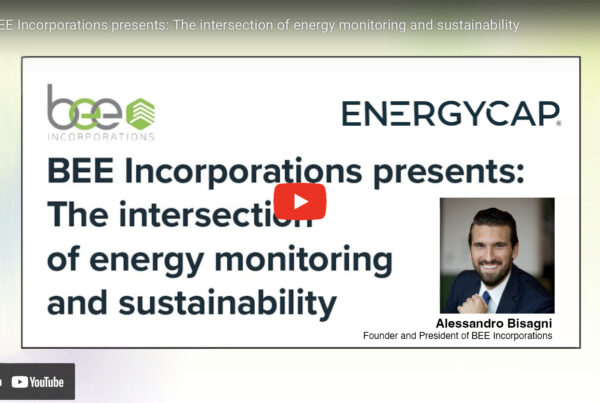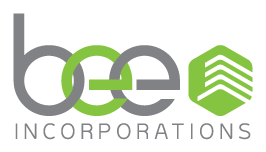Environmental, social and governance (ESG) reporting is crucial to building a more sustainable, and socially responsible future, but it requires cohesive standardization to maximize its positive impact. Investors and consumers alike are pushing for companies to push forward ESG initiatives.
However, the lack of standards for ESG monitoring, analyzing and reporting leaves businesses confused about where to start and what to report. Without standardization, it is difficult for ESG to fully reach its potential for impact, particularly in the construction industry.
The Importance of ESG Reporting
ESG reporting has been around for decades as a general business concept. It provides helpful metrics for investors and consumers to understand a company’s impact and trustworthiness. Although environmental impact has traditionally held the limelight, social and governance factors are also important.
Social reporting might include proof of suppliers that only use ethical employment practices or statistics showing a business’s responsible safety standards. Governance is more corporate or administrative-focused, including transparent accounting and fair business practices.
Overall, ESG reporting helps hold businesses accountable for their impact while encouraging them to improve. Reporting also rewards companies for considering the impact of their actions as investors and consumers to take notice of those positive operations and business practices. This financial impact of ESG reporting is crucial to motivating businesses to boost their score. This could be instrumental in creating a more environmentally, socially, and economically ethical and responsible future.
Informal Standards in ESG Reporting
ESG as a concept has admirable goals. However, no standard system for reporting or scoring exists and businesses can choose to disclose whatever data suits them – whether only environmental or only social, for example. Companies might reveal different sets of information or metrics even within the same industry. This makes it exceptionally difficult for anyone to make sense of ESG reporting or concretely compare businesses.
One such industry where a lack of standards is particularly problematic is construction. Companies face more challenges in ESG reporting than in other industries might. For example, construction projects themselves are so variable that it can be difficult to accurately measure and compare ESG data from one worksite and company to another.
CEO and ESG expert Doug Peterson described the current ESG standards situation as “a complete alphabet soup of different organizations trying to standardize ESG disclosures” in a 2022 interview with CNBC. Peterson’s team at the International Sustainability Standards Board is trying to change that. Right now, though, construction companies must improvise.
The Current State of ESG Standardization
Informal ESG standards have emerged in the construction industry over the past handful of years. This is a good start, but reporting still skews heavily toward environmental metrics, with little structure for social and governance reporting. Currently, the main way for construction companies and projects to reliably report ESG initiatives is by earning certifications or releasing ESG-related statistics.
For example, safety is arguably the most important social element of construction ESG. Companies can report data on their sites’ safety hazards, precautions and accidents. About 42 people die annually in crane-related incidents, and tracking this information can lead to improvements in safety standards.
Green building certifications are another popular ESG reporting method, focusing on the environmental element of ESG. Leading green building standards worldwide include LEED, NGBS and IGCC, among many others.
LEED, or Leadership in Energy and Environmental Design, has become the most popular and reputable certification system for environmental initiatives in construction. It provides a framework of different certification tiers that projects can earn by meeting specific benchmarks, such as energy efficiency and green building methods. Companies can use these certificates as a form of concrete and widely recognized ESG reporting.
How ESG Standardization Could Be Improved
ESG-related certification programs provide a good starting point for improving ESG reporting in construction. However, there is still plenty of room for improvement, and developing standards will be crucial for increasing adoption and helping businesses benefit from it.
Ultimately, the lack of standardization for recording and disclosing ESG data creates a simple but critical problem: Construction companies can report ESG data, but without any universal baseline or benchmark to aim for, no one can tell if reporting is effective or not.
In other words, a standardization system for reporting will include goals for what a “good” ESG score is, as well as standards for data collection and disclosure. This universal system will allow construction companies to improve their ESG impact over time. They could compare scores for two completely different projects and see how certain practices impacted their performance. Investors would also benefit from these clear baselines and universal reporting practices.
Some organizations are working to establish ESG reporting and disclosure standards. The International Sustainability Standards Board is among the industry leaders. It announced its first proposals for sustainability disclosure baselines in March 2022. This is an important step toward comprehensive standards. ESG reporting is gaining more popularity and importance, and a full set of scoring standards is certain to emerge over the next few years.
Evolving ESG Reporting
ESG reporting is crucial to improving businesses’ impact on the world and furthering key initiatives, such as carbon neutrality and ethically sourced materials. BEE is working to help create comprehensive standards for data collection and reporting, as well as performance baselines for businesses to work toward. Once ESG reporting is standardized worldwide, companies and investors can use those standards to take their initiatives to the next level.










